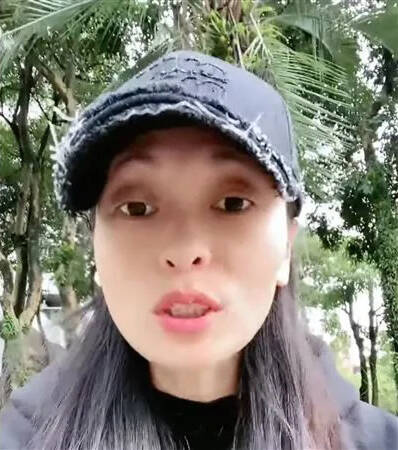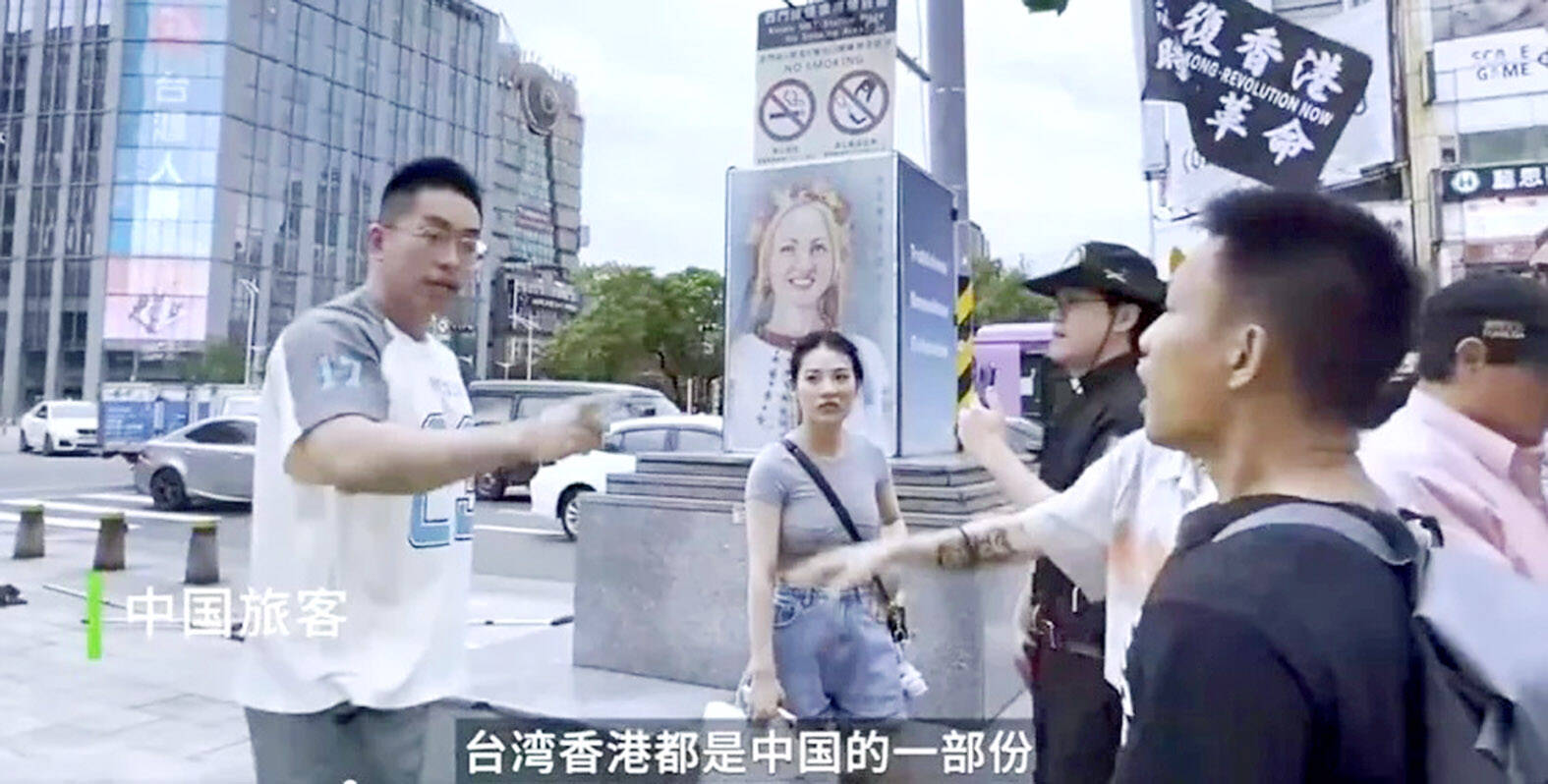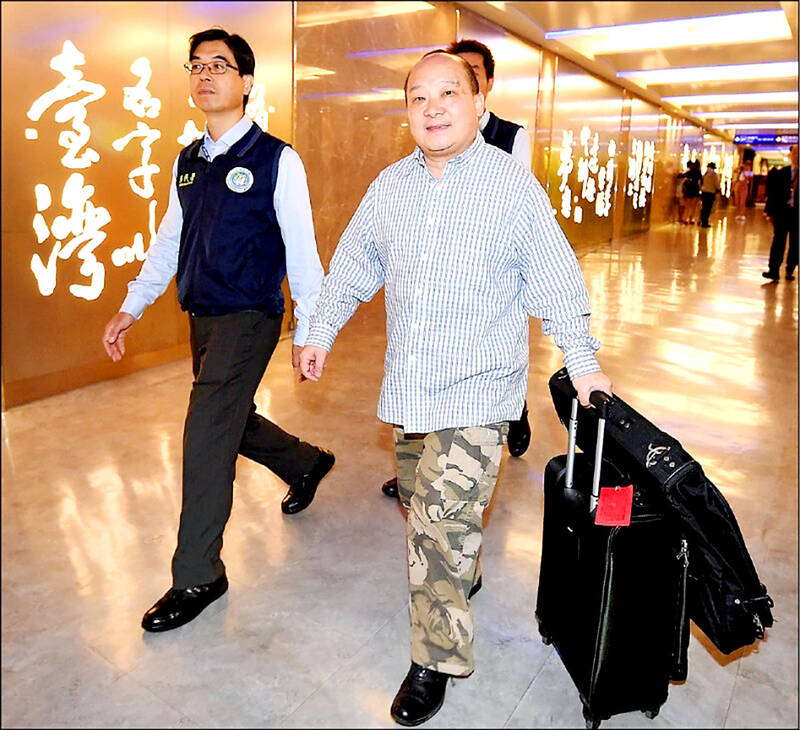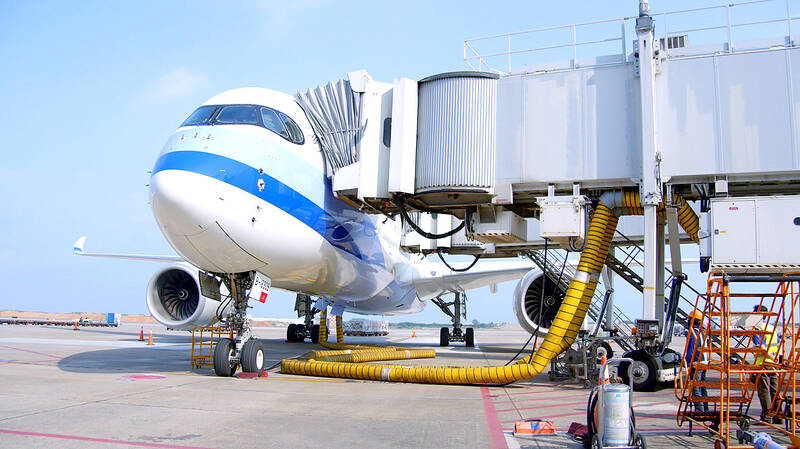In 2020, a labor attache from the Philippines in Taipei sent a letter to the Ministry of Foreign Affairs demanding that a Filipina worker accused of “cyber-libel” against then-president Rodrigo Duterte be deported. A press release from the Philippines office from the attache accused the woman of “using several social media accounts” to “discredit and malign the President and destabilize the government.”
The attache also claimed that the woman had broken Taiwan’s laws. The government responded that she had broken no laws, and that all foreign workers were treated the same as Taiwan citizens and that “their rights are protected, including freedom of speech.”
Last week the government announced that the National Immigration Agency (NIA) would revoke the spouse-based residence permit of social media influencer Liu Zhenya (劉振亞), a national of the People’s Republic of China (PRC), who is married to a local. This became a major news story, even making the international media. The NIA investigated reports that Liu advocated annexing Taiwan to the PRC through military force in videos posted on social media, including Douyin (where she has 400,000 followers), YouTube and TikTok. On all three, her account name is Yaya in Taiwan (亞亞在台灣).

Photo grab taken from Douyin
The NIA press release said that Liu’s residence permit will be revoked in accordance with Article 14 of the Measures for the Permission of Family-based Residence, Long-term Residence and Settlement of People from the Mainland Area in the Taiwan Area (大陸地區人民在台灣地區依親居留長期居留或定居許可辦法). The NIA said that her calls for military force against the people of Taiwan violate the Act Governing Relations Between the People of the Taiwan Area and the Mainland Area (臺灣地區與大陸地區人民關係條例).
Liu thus violated specific rules that govern PRC citizens. She will be barred from re-applying for residence within the next five years. The government is giving her time on humanitarian grounds to arrange her family affairs.
UNSETTLING

Photo: Chen Yu-fu, Taipei Times
For an American raised on the US’ radical free speech laws and customs, this case is unsettling in every way. As someone who was in Taiwan for the tail end of the Martial Law era and the subsequent democratization of Taiwan, Liu’s fate has a familiar authoritarian aftertaste. As a foreigner living in Taiwan on a permanent resident visa, with its restrictions on what foreigners can do in local politics, it is chilling. But also, fitting. If my rights are circumscribed, why should she be different?
As a resident of an island nation threatened with mass murder by its neighbor, calls for such violence by public figures are disturbing. It is hard for me to find any sympathy for a person who is calling for the death or imprisonment of my children. Moreover, she does not act entirely as an individual. Liu is a willing performer in that theater of anti-Taiwan propaganda that the PRC fosters in its citizens and supporters, an ecology of violent abuse she is exploiting for clicks.
HUMAN RIGHTS VIOLATION?

Photo: Taipei Times file photo
Yet, shouldn’t I be suspicious that the government is leveraging my emotional response to approve a human rights violation?
To a former blogger like myself who also developed a following in that swirling legal gray area called the Internet, the case and its resolution are discomfiting. With 400,000 followers, isn’t she a (quasi-) media worker, as I was? But, if she is a media worker, doesn’t she have a responsibility to behave as one?
There are often two sets of laws and regulations: one for ordinary foreigners, and one for the neither-fish-nor-fowl citizens of the PRC. The latter laws are sometimes loosely written and circumscribe speech, but in ways that leave the authorities able to interpret them the way they want.

Photo courtesy of the Taiwan Taoyuan International Airport
For example, in October last year the government deported two PRC citizens who had harassed pro-democracy demonstrators in Taipei at an event for the people of Hong Kong. One of them was shown on video apparently saying “Taiwan and Hong Kong are part of China.” Both were deported for visa application violations, which had been ignored by the authorities prior to their public behavior.
The Mainland Affairs Council (MAC), commenting on the case, said that PRC nationals should not make “statements harmful to Taiwan’s autonomous status” or engage in “acts undermining the nation’s sovereignty,” based on the Regulations Governing the Approval of Entry of People of the Mainland Area into Taiwan Area.
Liu’s remarks clearly violated both of these regulations. The government is on solid ground. Further, it has done this before with PRC citizens. In 2019, visiting PRC “academic” Li Yi (李毅) was deported for plans to make a public speech on the annexation of Taiwan to the PRC, something he had long advocated doing by force. He had been invited by the Chinese Unity Promotion Party (CUPP), the minor, far-right pro-PRC party, to speak at a forum titled “Cross-Strait Peaceful Unification and Development,” in Taichung. He was deported because engaging in political activity while on a tourist visa is forbidden.
Then-premier Su Tseng-chang (蘇貞昌) stated of the case: “If you come here to advocate unification through armed invasion under the pretext of sightseeing, you are no different from a terrorist.”
There is thus already precedent, specifically targeting this form of propaganda.
RULES ARBITRARILY ENFORCED
Yet, these rules are regularly broken by PRC citizens, in both the virtual and the real world. Other foreigners here also call for the PRC to attack Taiwan, as do pro-PRC Taiwan citizens. Liu’s real crime appears to be that she had an audience, and got reported.
This reaction highlights a problem with Taiwan law enforcement in general that is a likely source of reader discomfort with this case: an illegal behavior becomes commonplace because nothing is done, until something very dramatic is done once. Liu is like a foreign driver who has become used to making an illegal left turn on a certain corner like all the other locals, only to get a ticket the one time the policemen happens to be standing there. That arbitrariness rankles, even if the police are right.
Article 12 of the regulations for PRC citizen entry into Taiwan further stipulates that PRC nationals visiting Taiwan could have their visas revoked if they “engage in inappropriate acts that breach the principle of equality and dignity.” That appears to be vague enough for wide interpretation.
This indicates a problem with due process: as a lawyer friend observed, there is no judicial or independent review of these decisions. An independent review board would give the government further legal and political cover. Usually, in cases like this, an appeal takes place only after the individual has been deported. Very difficult to win such cases.
The China-aligned parties in the legislature will make noise about Liu. Lee Zhenxiu (李貞秀), a PRC spouse and party list legislative nominee for the Taiwan People’s Party (TPP), commented: “Today’s Lai government, yesterday’s Hitler; today’s mainland spouses, the Jewish people of the past.”
Deplorably, the United Daily News chimed in to denounce the “green terror” against PRC spouses. Perhaps they will even get Liu a lawyer to fight the deportation.
Too bad the pro-PRC Chinese Nationalist Party (KMT) and TPP gutted the Constitutional Court.
Notes from Central Taiwan is a column written by long-term resident Michael Turton, who provides incisive commentary informed by three decades of living in and writing about his adoptive country. The views expressed here are his own.

The People’s Republic of China (PRC) last week offered us a glimpse of the violence it plans against Taiwan, with two days of blockade drills conducted around the nation and live-fire exercises not far away in the East China Sea. The PRC said it had practiced hitting “simulated targets of key ports and energy facilities.” Taiwan confirmed on Thursday that PRC Coast Guard ships were directed by the its Eastern Theater Command, meaning that they are assumed to be military assets in a confrontation. Because of this, the number of assets available to the PRC navy is far, far bigger

The 1990s were a turbulent time for the Chinese Nationalist Party’s (KMT) patronage factions. For a look at how they formed, check out the March 2 “Deep Dives.” In the boom years of the 1980s and 1990s the factions amassed fortunes from corruption, access to the levers of local government and prime access to property. They also moved into industries like construction and the gravel business, devastating river ecosystems while the governments they controlled looked the other way. By this period, the factions had largely carved out geographical feifdoms in the local jurisdictions the national KMT restrained them to. For example,

The remains of this Japanese-era trail designed to protect the camphor industry make for a scenic day-hike, a fascinating overnight hike or a challenging multi-day adventure Maolin District (茂林) in Kaohsiung is well known for beautiful roadside scenery, waterfalls, the annual butterfly migration and indigenous culture. A lesser known but worthwhile destination here lies along the very top of the valley: the Liugui Security Path (六龜警備道). This relic of the Japanese era once isolated the Maolin valley from the outside world but now serves to draw tourists in. The path originally ran for about 50km, but not all of this trail is still easily walkable. The nicest section for a simple day hike is the heavily trafficked southern section above Maolin and Wanshan (萬山) villages. Remains of

With over 100 works on display, this is Louise Bourgeois’ first solo show in Taiwan. Visitors are invited to traverse her world of love and hate, vengeance and acceptance, trauma and reconciliation. Dominating the entrance, the nine-foot-tall Crouching Spider (2003) greets visitors. The creature looms behind the glass facade, symbolic protector and gatekeeper to the intimate journey ahead. Bourgeois, best known for her giant spider sculptures, is one of the most influential artist of the twentieth century. Blending vulnerability and defiance through themes of sexuality, trauma and identity, her work reshaped the landscape of contemporary art with fearless honesty. “People are influenced by